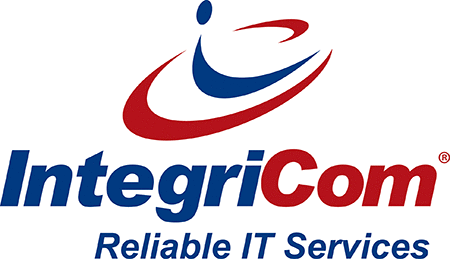Why do companies outsource IT services? This blog highlights seven compelling reasons businesses choose to outsource IT—ranging from cost savings to expert-level support—helping you understand why this strategy continues to grow in popularity.
Key Takeaways
- Outsourcing IT services significantly reduces costs by converting fixed expenses into variable ones and minimizing the need for in-house IT personnel.
- Access to specialized expertise through outsourcing allows companies to adopt new technologies rapidly and effectively address complex IT challenges.
- Outsourcing fosters company focus on core business functions, enhances security, ensures compliance, and provides 24/7 support, driving overall operational efficiency.
Cost Efficiency
Companies frequently outsource IT services to achieve a notable decrease in costs. By transforming fixed IT expenses into variable ones, businesses can better control their budgets and direct resources where they are most urgently required. Companies are able to economize by spending only on the services that they actually utilize.
When companies outsource, they avoid the hefty initial investments needed for acquiring and maintaining IT hardware and software. The outsourcing provider takes on the role of supplying advanced technology and support services, thus sparing businesses from pouring funds into infrastructure. This strategic move reduces not just expenses but also financial risks tied to technological investments. Outsourcing enables companies to concentrate on their principal activities while leveraging professional assistance.
The need for an extensive internal IT department diminishes with outsourcing since it alleviates payroll burdens associated with hiring, educating, and maintaining specialized staff members within the organization. This shift toward leveraging external service providers allows businesses to maintain efficiency while controlling operational costs.
Managed service providers furnish virtualized IT offerings that typically surpass what could be achieved via in-house solutions regarding cost-effectiveness. By consolidating managed services into comprehensive packages, these providers enable organizations to harness substantial savings while boosting fiscal efficiency significantly.
Access to Expertise

Employing outsourced IT services provides companies with specialized skills and know-how that might be expensive or challenging to develop internally, particularly for small to midsize firms. Such access empowers these businesses to handle intricate technology requirements confidently and efficiently.
By leveraging outsourced IT personnel, enterprises can swiftly embrace cutting-edge technologies without the need for extensive internal retraining. This nimbleness is critical in maintaining a competitive edge in fast-changing markets, enabling organizations to utilize recent tech innovations as part of their strategic operations.
Teams from outsourcing partners typically bring a variety of proficiencies, including cloud computing expertise and cybersecurity insights—competencies that may not exist internally at many firms. Accessing this wide spectrum of knowledge helps companies adeptly navigate technological obstacles, streamline operations, and enhance IT performance. Partnering with such experts ensures quality outcomes that would otherwise require significant in-house investment.
Focus on Core Business Functions
By delegating IT tasks to a specialized external provider, internal teams can refocus on the central aspects of their business that drive innovation and strategic advancement. This shift frees essential resources within companies, allowing them to concentrate on primary operations, which in turn bolsters productivity and operational efficiency.
Engaging managed IT services alleviates concerns over limited resources and empowers businesses to dedicate attention to strategic endeavors critical for growth. Employees are thus able to commit their efforts toward projects with direct influence on the organization’s success without being encumbered by technology-related complications.
In addition, outsourcing helps reduce workplace interruptions stemming from technical issues, as these are proactively addressed by dedicated service teams. This not only minimizes downtime but also improves long-term workflow stability, positioning the business to operate more smoothly and effectively.
Scalability and Flexibility
Companies can modulate their IT personnel in line with project requirements through outsourcing, providing the capacity for efficient resource scaling without substantial financial outlays. Such flexibility is essential to foster growth and respond adeptly to fluctuations in economic circumstances.
By adopting an outsourced model, businesses are able to expedite the expansion of their IT functions, delivering faster customer assistance, which enhances satisfaction and loyalty. This streamlined ability to augment operations can endow companies with a competitive edge within their respective industries. Outsourcing emerges as an effective strategy for realizing these ambitions.
Outsourced infrastructure solutions offer adaptable support that facilitates swift adjustment to emerging technologies and shifts in market dynamics. It empowers organizations to efficiently address internal demands, integrate new systems quickly, and maintain consistent performance—even in periods of rapid change.
Enhanced Security

In the current era of digitalization, ensuring robust security is essential, and engaging an outsourcing company to handle IT services can substantially bolster a business’s defenses. Taking preventive measures in cybersecurity guarantees the protection of sensitive information and operational systems. The responsibility lies with the outsourced provider to maintain client data integrity, offering companies a stronger sense of assurance.
Specialized teams within outsourced IT services focus on active risk mitigation by pinpointing vulnerabilities and applying targeted protocols to guard against unauthorized access. They deploy advanced security solutions such as continuous monitoring, data encryption, and firewalls to protect digital assets from growing cyber threats.
With dedicated professionals managing these tasks, companies benefit from consistent oversight of software updates, patch management, and emerging threat assessments. This ensures that systems remain protected against potential breaches and aligned with best practices for digital safety.
External IT providers also help businesses comply with cybersecurity frameworks and industry regulations by maintaining up-to-date knowledge and implementing appropriate protocols. This support contributes to improved protection while reducing legal exposure tied to cyber incidents.
Improved Compliance
Adhering to government regulations and industry norms is essential for companies aiming to avoid legal repercussions and cultivate consumer confidence. By outsourcing IT services, businesses benefit from the specialized knowledge offered by external providers designed to satisfy regulatory demands. These service partners establish top-tier security measures and perform risk evaluations that help enterprises maintain adherence to data privacy laws.
In addition to offering compliance support, these IT providers implement systematic documentation and auditing procedures to ensure transparency and accountability. Businesses can then operate with greater confidence that their systems align with regional, national, and global compliance standards.
Engaging in this preventative strategy enables firms to prioritize business performance without compromising regulatory integrity. These service providers help prevent costly compliance violations and support long-term reputational trust in both consumer-facing and B2B environments.
24/7 Support and Monitoring
Outsourcing IT services grants businesses the benefit of constant, round-the-clock support and network monitoring. This continual oversight helps to ensure that operations are upheld without disruption, with prompt resolution of any problems encountered. Being able to draw on expert IT assistance at all times bolsters the dependability of a business’s operational activities. In critical situations, companies have the capability to address complications quickly, reducing downtime and safeguarding seamless operation—highlighting outsourcing’s contribution to streamlining organizational procedures.
The availability of 24/7 support means that incidents are identified and handled in real-time, preventing minor issues from escalating into major operational threats. Monitoring teams oversee infrastructure, applications, and security endpoints, ensuring system resilience across all levels.
Such perpetual vigilance plays an essential role in sustaining a sturdy and fault-tolerant IT infrastructure for organizations. With consistent monitoring, businesses are better positioned to maintain productivity, ensure customer satisfaction, and protect against unforeseen IT challenges.
Summary
Outsourcing IT services delivers a wide array of benefits, including cost efficiency, access to specialized expertise, and a sharpened focus on core business functions. By converting fixed costs into variable costs and avoiding capital investments, businesses can manage their budgets more effectively and allocate resources to the areas that need them most.
For those in need of outsourced IT services in Atlanta, IntegriCom offers comprehensive managed IT solutions that ensure your business is secure and compliant. Our services provide proactive cybersecurity management and adherence to regulatory requirements, helping you protect your data and avoid legal issues. With 24/7 support and monitoring, we enhance the reliability of your operations, giving you a competitive edge. By exploring our outsourcing options, companies can transform their operations and drive innovation and growth in today’s dynamic business environment. Schedule a consultation today to explore tailored IT solutions.
Frequently Asked Questions
1. What types of businesses benefit most from outsourced IT services?
Small to mid-sized businesses with limited internal resources often gain the most from outsourcing, especially when scaling operations or enhancing security.
2. Can outsourced IT teams work alongside internal IT staff?
Yes, many outsourced providers offer co-managed services, supporting internal teams with specialized expertise and expanded coverage.
3. How does outsourced IT adapt to industry-specific needs?
Experienced providers tailor solutions based on industry regulations, workflows, and compliance standards to ensure seamless integration.

